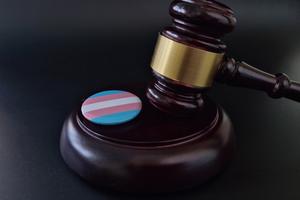Switzerland’s Catholic Church Approves Independent Abuse Study
By approving an independent study, Swiss Catholic leaders are following the Church in France, which commissioned a landmark report concluding that 330,000 children were abused over a 70-year period.

ZURICH, Switzerland — The Catholic Church in Switzerland has announced that it is commissioning an independent study of abuse.
A research team of historians from the University of Zurich will investigate sexual violence, abuse, and cover-ups in the Swiss Church since the mid-20th century, reported CNA Deutsch, CNA’s German-language news partner.
The decision was taken jointly by the Swiss Catholic Bishops’ Conference, the country’s conference of religious orders (KOVOS), and the Central Roman Catholic Conference of Switzerland (RKZ), an association of regional Church groups.
Switzerland, officially known as the Swiss Confederation, is a landlocked central European nation of around 8.5 million people, 37% of whom are Catholic.
By approving an independent study, Swiss Catholic leaders are following the Church in France, which commissioned a landmark report concluding that 330,000 children were abused over a 70-year period.
The Swiss probe will begin in March 2022, with researchers guaranteed independence, the bishops’ conference said on Dec. 6.
The final report is expected to be published by summer 2023 at the latest in German, French, and Italian, three of the country’s official languages.
Two Zurich professors, Monika Dommann and Marietta Maier, will oversee the investigation, which will be carried out by three postdoctoral students and two assistants, according to the project’s website.
“The year-long pilot project lays the foundation for future research on the history of sexualized violence that Catholic clerics, Church employees, and members of religious orders have practiced in Switzerland since the middle of the 20th century,” the website says.
“The focus is on the structures that enabled the sexual abuse of minors and adults, and made it difficult to detect and punish it. All language regions are taken into account.”
Meier, an affiliated professor of modern history, has a background in researching “the history of knowledge and science, the history of psychiatry, and the history of emotions, as well as methods and theories of historical studies.”
She has focused on “structurally applied violence,” as well as the role of “order” and “force” in modern psychiatry.
The research interests of Dommann, a modern history professor, include “media history, economic history, legal history, and the history of knowledge and science.”
Dommann told the Swiss German-language daily Der Bund on Dec. 6 that the investigation would show whether Church authorities were truly committed to granting free access to archives.
She said: “We are not naive. As historians, we have a great deal of experience with the fact that when it comes to sensitive issues, there is often little willingness to face the past. We almost expect files to disappear or the archives not to be opened everywhere.”
“But working with gaps and problematizing them is part of our everyday life. In addition, the possible destruction of files is also an important subject of investigation.”
Bishop Joseph Bonnemain, who is responsible for the Swiss bishops’ conference department focusing on abuse in the Church, said in a Dec. 6 interview that the study would focus on historical abuse because “everything indicates that there are not only individual but also systemic causes for the attacks in the Church context.”
“It is not just individual acts that are of interest, but the big picture. The pilot project will begin with basic historical research to clarify and create the prerequisites for further research work,” the bishop of Chur, eastern Switzerland, said.
“The comprehensive study is another important step with which we follow up our confession of guilt with concrete measures. The deeper examination of the past will, I hope, encourage further victims to address and, if necessary, report any attacks they have suffered.”
“And it provides the basis for us as an institution to take on our responsibility even more resolutely and to adapt structures in such a way that they make sexual exploitation as impossible as possible.”
- Keywords:
- switzerland
- clergy sex abuse














